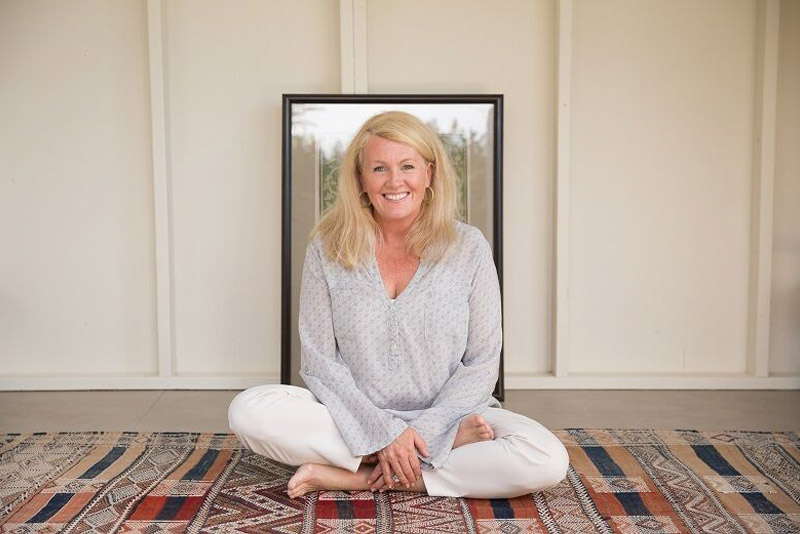Peacefinder Practices

Peacefinder Practices
Find Peace Again if Your Zen gets Zapped
When you regularly engage in a seated, formal mindfulness practice such as a Mindful Breath Awareness or a Mindful Body Scan, the over-reactivity of the body and mind is reduced, the build-up of stress is lessened, and you become much calmer, overall.
However, even for those of us who live a mindful lifestyle, it is natural to feel stressed in certain situations. And, when you feel stressed, you can’t always sit down for a 15-minute formal practice. Regular formal mindfulness practice can create resilience – so even if you do feel stressed for a moment – it’s easy to recover with a Peacefinder Practice. Each can be done with your eyes open or closed, and no one even has to know you’re doing them!
Here are a 14 quick fixes and easy practices that can serve to help you regroup and find a little zen in a stressful situation. As you read through these, give each one a try for a half a minute or so. These are in no particular order.
- Close your eyes:
You can usually close your eyes without being noticed, even if just for a half a minute. Try it now. The outside world takes a backseat while you go within. You almost instantly regain a sense of balance and relaxation. - Deepen your breath:
You can find inner peace with your eyes open, too. Focus your attention on your breath as you slowly take in a deep breath through your nose, then, let it out slowly through your nose. Pause for two seconds, then repeat. Holding the breath after you exhale helps counteract stress patterns of shallow breathing or holding the breath in. In, out, hold, repeat. - Count your breaths:
Eyes open or closed, it might help to silently count your breaths. In, count one; out, count two. Count your breaths all the way to ten. The mind might wander, but simply keep focusing back to your breath and counting. This calms your nervous system. - 30-second body scan:
Bring your attention to the sensation felt throughout your body, whether you are sitting or standing, where you are at this moment. With your eyes open or closed, scan your body from the top down, front and back, relaxing as you go. Relax your forehead, your eyes, your mouth, your tongue, your jaw. Lower your shoulders and soften your belly. Bring your attention to your hands, then your feet. In less than a minute you’ll feel better from the inside out. - Pay attention to each one of your senses:
What sounds do you hear right now, in this moment? (are they far or near? Or constant or do they come and go?) What are you feeling? What do you see? (Notice colors, shapes, shadows, light, etc.) What do you taste? Are there any aromas? By paying attention to your senses, your focus can come back to the present moment just enough to relieve stress. As someone once said, “Lose your mind and come to your senses!” - Say a prayer or affirmation:
Silently repeat a prayer or an affirmation to shift your focus from a stressful situation to peace. Slowly say a prayer or repeat an affirmation silently. All is well, I’m doing the best I can, or, There is peace in this moment, are good examples. You can also choose a single word, like One, Peace, Trust, or Calm. Repeat seven times. - Be grateful:
Bring your attention to what you are grateful for at the moment. Mentally make a list of 5 or 10 people/places/things/experiences you are grateful for. - One good thing:
Think about an experience that happened today or yesterday that made you feel good. Perhaps it was a meal, an activity, a place you visited, or a moment with a person. Notice how you feel when you reflect on it and savor it. - Smile:
Give yourself a smile (don’t grimace.) Smiling releases endorphins that reduce stress and help you feel better. Studies show that even faking a smile can lead to feeling happier. Even if it feels strange at first, make it a point to smile more often. - Slow it down:
Do one thing at a time, just a little slower than usual. What are you rushing for, anyway!? Get up from your chair more deliberately or walk a bit more slowly—you’ll find that this helps ease the tension, brings you back to the present moment, and relaxes your mind and body. - Compliment someone:
Find someone to thank for their service or support, and offer them a genuine “thank you”, while looking them in their eyes. - Excuse yourself:
(Don’t do this now!) If you’re unhappy in the moment, or if you’re around people who are unhappy, the discomfort can be contagious. Whenever you notice signals of stress in your body, simply excuse yourself, “I’ve got to get back to a project,” and walk away. That project is your inner peace. Go outside, back to your desk, or head to the bathroom. Once there, use one of the above techniques. - STOP Practice:
S = Stop: Stop what you’re doing; put things down for a minute.
T = Take a few deep breaths. Breathe slowly and deeply in and out through your nose. (You can extend this practice by letting the breath return to its natural rhythm and depth, as you notice the sensations. You can silently say to yourself “in” as you’re breathing in and “out” as you’re breathing out.)
O = Observe. Observe your experience just as it is—including thoughts, feelings, and emotions. Notice what is on your mind and how thoughts come and go. Notice if any emotions are present. You can name them, and notice where you might be feeling them in the body. Research shows that just naming your emotions can turn the volume down on the fear circuit in the brain and have a calming effect. Notice your body sensations and the nature of your breath. Notice your posture. Notice sounds, sights, aromas, etc.
P = Proceed. Proceed with something that will support you in the moment: talk to a colleague, go for a walk, listen to soothing music, or change the project you are working on. - Be Compassionate:
When you’re experiencing stress, it’s common to be hard on yourself and to criticize yourself for not being able to handle things better. Talk to yourself in a kind and understanding way: Imagine what a good friend might say to you, or, imagine what you might way to a good friend when they feel this way. Refrain from criticizing yourself or anyone else, and accept your your feelings and recognize your common humanity – we all feel like this from time to time.
Sarah McLean
Sarah McLean is an acclaimed teacher and thought leader who is determined to create more peace on this planet by helping people wake up to the wonder and beauty of their lives and the world around them through the practices of meditation and mindfulness. She inspires audiences everywhere blending the spirit of Zen wisdom with Vedic knowledge and self-inquiry. She helps demystify meditation and makes it accessible to anyone. It was over 30 years ago when she began her daily meditation practice, and moved in to a Transcendental Meditation community. There, she received advanced training in meditation and studied Ayurveda. Since 1993, when she became the education director for Deepak Chopra’s Center for Mind Body Health, she's been teaching contemplative practices and mind/body health. In 1997, she went to India to live in a traditional ashram in India, When she returned to the States, spent two years as a resident trainee in a Zen Buddhist monastery. She fell in love with Self-inquiry and served as the director of Byron Katie's School for the Work. In 2012, she founded the McLean Meditation Institute, home of the Meditation Teacher Academy which certifies meditation and mindfulness teachers through its 300-hour teacher training program. Her bestseller, Soul-Centered: Transform Your Life in 8 Weeks with Meditation, and her most recent book, The Power of Attention: Awakening to Love have received rave reviews. She now lives in Santa Barbara, California where she trains meditation teachers and offers online classes and lives a life she loves.






